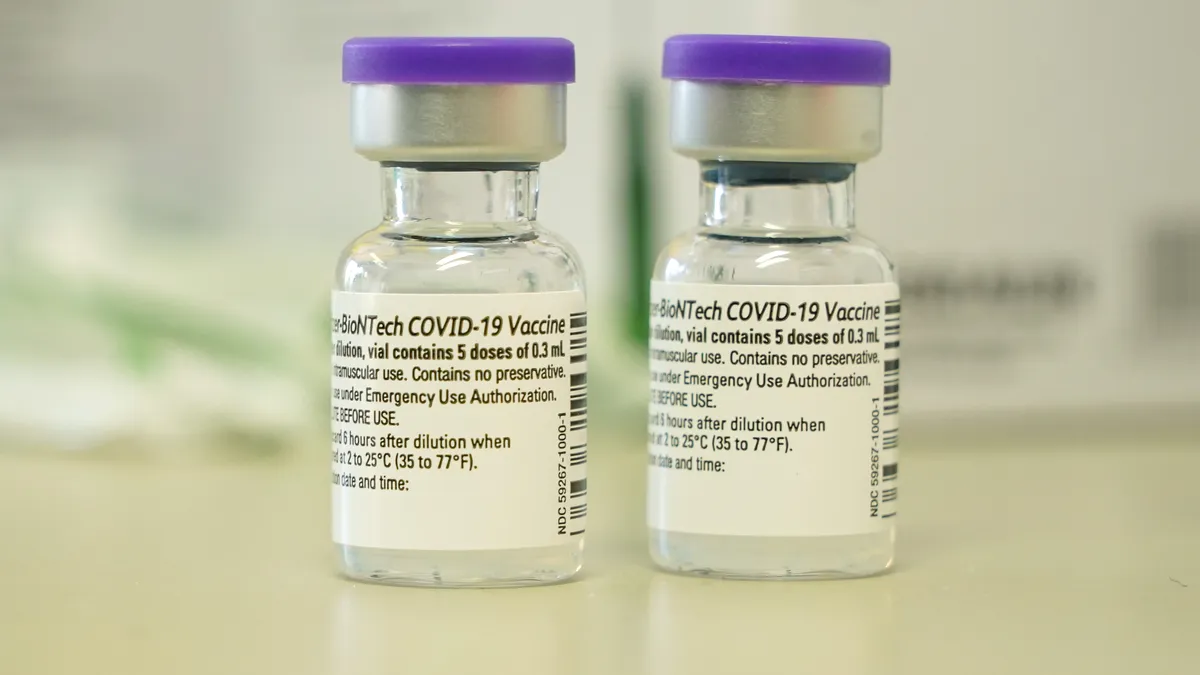Dive Brief:
-
FDA has reiterated that antibody testing is not currently recommended to assess immunity after COVID-19 vaccination even as some medtechs are betting on the tests.
-
The agency said SARS-CoV-2 antibody tests results should not be interpreted as evidence of a specific level of protection from the coronavirus. People who think they are protected may take fewer precautions and increase their own risk and the spread of the pathogen.
- FDA made the comments against a backdrop of industry interest in selling tests that enable the evaluation of immune status. Beckman Coulter, for example, unveiled the launch of a fully quantitative SARS-CoV-2 antibody test on the same day as FDA's safety notice.
Dive Insight:
Beckman Coulter focused its disclosure of launch of Access SARS-CoV-2 IgG (1st IS) on the role of antibody tests in monitoring and responding to the COVID-19 pandemic and stuck closely to the language used by CDC in its current guidelines. Yet, the company also quoted Bernard Cook, director of operations of the core automated laboratory at Henry Ford Hospital in Detroit, who pointed to the potential role of antibody tests in recipients of vaccines.
"Now, and in a post-vaccinated world, these assays are going to help physicians better understand the immune response of patients who develop COVID-19 infections, those who have post-acute sequelae of COVID-19 and in assessing response to vaccination to SARS-CoV-2," Cook said.
U.S. authorities are currently opposed to the use of antibody tests in assessing response to vaccines. FDA set out the thinking behind its position in the safety communication, observing that positive and negative test results can give a misleading impression.
A positive test result may stem from a prior infection with the coronavirus, not a vaccine. Equally, FDA said negative results may reflect the inability of serology tests to detect antibodies generated in response to COVID-19 vaccines. The anti-spike protein antibodies formed in response to the mRNA vaccines approved in the U.S. will not be detected by serology assays that look for antibodies against nucleocapsid proteins.
Even if a positive test result is a true reflection of a person's immune response to a vaccine, there is a lack of knowledge of what it means in terms of their protection from the coronavirus. "Research is needed to understand the meaning of a positive or negative antibody test, beyond the presence or absence of antibodies," FDA said.
The diagnostic industry is preparing for a future in which we have a much clearer understanding of the link between antibody test results and the likelihood of protection from COVID-19. LabCorp CEO Adam Schechter described that future to investors earlier this year, explaining that "If there is a quantitative number [af antibodies] that people can feel comfortable, they can fly, they can go to events, that they can do many other things, then it will be very important."
LabCorp, its chief rival Quest Diagnostics and a clutch of test developers including Roche and Thermo Fisher Scientific have all made moves that could position them to help realize Schechter's vision. The question is whether the science will firm up enough for authorities to back the plan.










